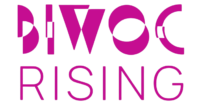Code of conduct
BIWOC* Rising's Code of conduct
We are the first and only intersectional work & social club in Germany. Our vision is to create a safe(r) space for Black, Indigenous, Women of Color, Trans, Inter, and non-Binary People of Color, who are facing intersectional discrimination. Our safe(r) space welcomes and nurtures the different perspectives, forms of knowledge, and expertise that arise from our diverse lived experiences. BIWOC* Rising is a space that brings these valuable experiences together to create greater mobility and prosperity and to strengthen our communities.
For us, intersectionality is not a buzz word to profit on the backs of those who experienced it. Intersectionality is our main approach and tool to understand and challenge structures of discrimination and racism that members of our marginalized communities face daily. We are empowered by each of our member’s life story, privileges or lack thereof, and are committed to ensuring a seat on the table for each and every one of us.
Our vision is of a safe(r) space that values and celebrates our creativity, strengths, and weaknesses; a safe(r) space that allows self and community care, healing and empowerment; and a safe(r) space that can feasibly turn into reality with the commitment and engagement of all members.
Since the conception of BIWOC* Rising, we have engaged in conversations with our members through informal, kitchen table talks and through awareness workshops led by qualified trainers that guide us in the process of creating and maintaining BIWOC* Rising as our community safe(r) space. This code of conduct is the product of these ongoing conversations.
All members are committed to this code of conduct:
1. Maintaining a Peaceful (Harassment-Free) Professional Environment
Despite our best efforts, we know that violence and harassment can occur in spaces that we believe to be our safest spaces. But awareness, acknowledgment and actions in support of those who are being targeted, can help us create a space free of any form of harassment. We can thereby prohibit all forms of violence and harassment, including verbal, physical, sexual, or psychological abuse. Harassment includes, but is not limited to:
- Verbal comments that reinforce social structures of domination
- Comments that are lewd, lascivious, demeaning, or derogatory
- Racist, sexist, or otherwise discriminatory jokes, comments, and behavior
- Unwelcome discussion of sexual orientation or gender identity
- Unwelcome discussion of racial or ethnic background
- Unwelcome discussion of physical appearance or body size
- Unwelcome discussion of ability or impairment
- Photography or video/audio recording without consent
- Distribution of photographs or recordings of anyone without their permission, including posting on Twitter or other social media without permission
- Inappropriate physical contact
- Unwanted touching, exotification or verbal comments about someone’s body or heritage that are specifically racialized
- Advocating for, or encouraging, any of the above behavior
2. Social Justice Through Language
Language affects us in many ways, whether we are recipients of it or simply around it. And we are all in the process of learning, unlearning and being made aware of our privileges. We therefore recommend that everyone remain open to (and thankful to) being corrected if you used a hurtful and/or discriminatory language, whether intentionally or not. See our language guidelines below:
- Sexual and racist language and imagery are prohibited.
- Make sure to ask the person you are talking to about their pronouns.
- Avoid ableist language.
Avoid any discriminatory terminology.
3. Safe(r) Space
We aim to keep BIWOC* Rising as a safe(r) space at all times. Outside working hours, certain events, such as network meetings, may be open to different audiences. Such changes will be posted on BIWOC* Rising social media and our Slack’s #Events channel.
On an agreed day (currently on Fridays), members can hold meetings with non-BIWOC* and non- TIN* BIPOC guests in the meeting-room. In this case, guests might use the meeting room and toilets but cannot enjoy the joint working-space and/or kitchen.
4. Well-Being for All: Maintenance
We aim for all members to enjoy this safe(r) space and treat it as a second home. A home where one can work in a relaxed atmosphere, prepare lunch/dinner, and enjoy a quiet reading time. This is possible when the space is well-maintained. A cleaning agency is hired to clean the space once a week (usually on weekends). But this is not enough! All members are requested to help maintain the space clean. This includes the following guidelines:
- Always keep your workspace tidy. Disinfection sprays are provided so make sure you sanitize your desk before you leave.
- Place used dishes in the dishwasher. Empty dishwasher if needed.
- Do not leave items in the kitchen sink.
- Items that do not fit in the dishwasher must be hand washed, dried and stored back in kitchen cupboards.
- Remove uneaten food from the office fridge at the end of the day.
- Empty kitchen bin if needed.
- Keep toilets clean. Disinfection towels are provided.
A constant violation of the code of conduct can lead to the agreement’s termination.
